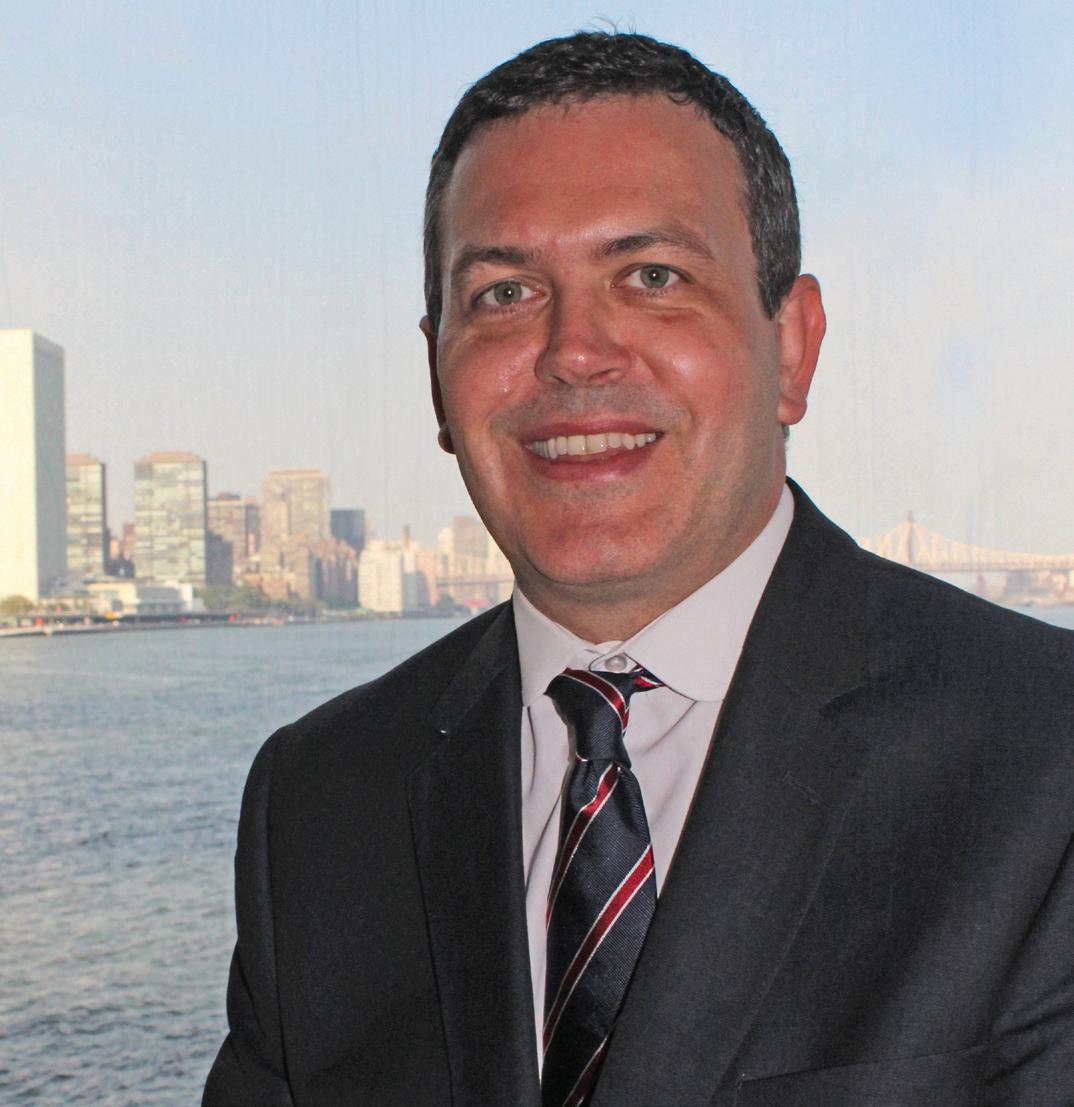
10 minute read
Endpiece
‘whole man’ became the basis of the educational philosophy expounded by L P Jacks and disseminated through the Harrow Conferences for Young Schoolmasters. It is perhaps now one of the contributory streams in the river of mindfulness.
Physical education and an awareness of the whole body fostered by gymnastics was one of Thring’s maxims of life and one of the strands that connects him to some of the pioneering Headmasters that were to follow, such as Reddie, Badley, Hahn and Coade. Readers who remember the brutality and humiliation of PT under ex-Army PTIs may be surprised to learn that those who teach physical education in schools nowadays are probably better aware of the whole school and the whole child than any other members of the staff.
They see every pupil in the context and presence of their peers and in the great levelling of physical activity. They can see for themselves the body language of individuals and the patterns of social groupings that reveal so much about how children are ‘in themselves’.
This is how Malcolm Tozer started as a teacher and he has clearly never lost an awareness of the whole child. This fine book is the fruit of 40 years’ experience and an immense amount of reading and research. As a Headmaster himself, the author knows something of what goes on behind the public face, of the private thoughts suppressed behind the carefully chosen words that butter the parental parsnips. He has looked at independent schools with a clear eye and was unafraid to extol their virtues when he demonstrated their significance in international and Olympic sport in the new millennium.
In The Ideal of Manliness he deploys a wealth of original documents to reveal the characters behind the beards and his own prose carries the reader comfortably through this substantial book. It is easy to see why Thring is still so highly regarded, and salutary to realise how very advanced the great Victorians were in education, as in so many other areas.
Even at a distance of 3500 miles, the end of the school year was inevitably preoccupied by the Brexit campaign and vote. The referendum was actually taking place on the same day that we congratulated and said farewell to our graduates and other departing students and staff. There were many discussions around the school and questions from students, staff and parents about the likely outcome and possible consequences.
The result may present an unpredictable mix of challenges and opportunities for international British schools as the question of British identity seems likely to become rather more complex over the coming years. There will doubtless be many theories and future doctorates investigating and trying to explain the reasons for Brexit, but perhaps my favourite question thus far was from a rather perplexed six year-old who wanted to know why everyone was suddenly so obsessed with breakfast.
The emotions aroused in the debate and the angry, acrimonious tone of so many of the post-Brexit exchanges, have also had me reflecting again on the importance, but difficulty, of seeking to foster one of the key qualities aspired to across IB schools internationally. ‘These programmes encourage students across the world to become active, compassionate and lifelong learners who understand that other people, with their differences, can also be right.’ As a history and politics teacher, I have always been acutely aware of the challenges and optimism in translating this aspiration into meaningful action and outlook for students.
Letter from America
Jason Morrow contemplates a dog’s breakfast
Thring not only conceived of and founded a ‘School Society and Annual Conference’ for fellow Headmasters in 1869, but he hosted the annual conference of the Association of Headmistresses in 1887 and might therefore be pleased to know that his brain child is now ‘The Headmasters’ and Headmistresses’ Conference’. But far more significant is the holistic approach he practised and proclaimed which is still at the heart of truly good education. It would be a very great benefit to this country if Thring’s maxims for life were put into public and private practice. Malcolm Tozer taught at Uppingham School from 1966 to 1989 and was a housemaster for 14 years. He was a Headmaster for 16 years and retired in 2004.
The anticipated change in the UK’s relationship with the rest of the European Union (EU) will also require many educators, myself included, to rethink some of the assumptions we had about the likely future direction and development of the country. I partly opted to study French and German at university in anticipation of a brave new world post-1992, when the Maastricht Treaty on European Union promised to transform the nature of working and living across the continent.
It is far too early to know to what extent such opportunities will change for the next generation as a result of leaving the EU, but I couldn’t help but think during Cameron’s last appearance at PMQs that it might be equally true to say “The EU was the future once.”
However the economic and political consequences of the campaign and vote emerge over the coming months and years, it seems to make it more important than ever that we equip our students with the knowledge, skills and confidence to adapt, engage and thrive in an unpredictable world. The growing number of British schools abroad also undoubtedly have a valuable role to play, not just in contributing to approaches to education internationally, but also in helping to showcase and reflect the outward-looking, welcoming and inclusive nature of modern Britain, which has been somewhat tarnished by aspects of the Brexit debate.
It is always a relief and valuable opportunity for reflection when one reaches the end of the first year in a new school or
position. It can also be very reassuring and invigorating at the end of such a period to be able to recognize how much one has learned, and to appreciate fresh insights or understanding one has gained from new colleagues, parents and students. One of the strongest thoughts I have had since the end of the school year, however, was not so much a fresh insight, but more a renewed conviction and belief that the essential ingredient for a happy and successful school is committed, passionate teachers who are given the support and time to ‘weave their magic’ in the classroom as John Jones so brilliantly put it.
Contact ratios, number of classes taught and additional practical or administrative duties are typically considerably less in US schools, and this is not because staff are less hard working, but rather because there is a greater recognition that the extra non-contact time helps enable teachers to bring creativity and differentiation to each lesson without taking such a toll on the individual teacher.
Managing a heavy workload continues to be a major challenge for many dedicated teachers in UK schools and a real concern for many equally dedicated school leaders. My first year leading a school in New York has convinced me, however, that it is a challenge and concern worth confronting and tackling, as the benefits for colleagues and students’ learning are too great to ignore.
Among my fresh insights this year, perhaps the ones which may be most portable or of wider interest, have very much been around student experience and feedback. I have now gone through two cycles of reports at the school and, as in every school, there are elements of our system which work well and others that have scope to be refined. What I have found most surprising and, if I am honest, refreshing in the reports, however, is a rather more frank and transparent way of letting parents and students know how they are doing and areas of concern or for improvement.
Maybe it is a trickle-down effect from UCAS reference writing in which any hint of reservation can scupper an application, but over my two decades working in UK schools, reports seemed to become increasingly long and timeconsuming to generate, but lacking in constructive criticism to help students improve. A little more US style straight talking might help to ensure that reports become a more powerful and effective tool in providing guidance and feedback to students and parents.
Another subtle difference which it has taken time to understand is why we had a series of music ‘shares’ rather than ‘concerts’ over the year. I even made the double bogey of thanking people for the ‘Christmas Concert’ back in December when it had actually been a ‘Winter Share’, but thankfully was excused this linguistic faux pas. By the time of the Spring Share, however, I could appreciate more the significance of presenting it as a share, as it became a less pressured occasion for students (and perhaps staff) and more of a forum in which children with different levels of experience and confidence could perform.
Every student in the school from Year 5 upwards has a timetabled ensemble lesson each week, in which they are learning an instrument in addition to any individual instrumental lessons they may have, which means that every child has the chance to try out learning an instrument (beyond the omnipresent recorder of primary education).
Jason Morrow.
One of the beauties of working in an international school setting, of course, is that the transfer of ideas and approaches is rarely one direction. Despite the massed ranks of students learning an instrument, the school didn’t have an orchestra, as that is less of a feature of American primary schools, so it was a highlight of the past year to witness the first appearance of our new orchestra in the final share of the year, as it gave students the experience of playing alongside many other instruments.
By the end of term, the thermometer had tipped above 90 degrees several times and the air conditioning was more than a luxury, but it was also clear that it was time for the staff and students to set off for their summer camps, adventures and vacation. I’m pleased to say that in finishing this article, I have also ticked off the last item on my pre-holiday to do list and am now looking forward to another great benefit of living and working in NYC – the prospect of a classic road trip. Jason Morrow is Headmaster of the British International School of New York.
SPORTSWEAR FOR GUARANTEED SATISFACTION
HYDROCOOL
Performance playing layer
CLIMASKIN
Performance base layer

Squadkit is dedicated to providing top quality sportswear for the next generation of athletes.
We use the latest breathable and sublimated styles to provide high performance garments uniquely designed to help your school stand—out and your teams perform.
However our focus on satisfaction doesn’t stop with the garments. We’ve partnered with Schoolblazer – the leading uniform supplier to independent schools to ensure that our garments are delivered to your parents every time. With intelligent sizing, high levels of availability and free name-taping, we take the hassle out of sportswear buying.
■ Breathable fabrics ■ High performance garments ■ Bespoke designs ■ Team and staff-wear
Squadkit - Performance delivered.
Quality. Style. Innovation.

Changing the face of modern schoolwear.
Schoolblazer is the UK leader in providing stylish, modern schoolwear to top independent schools. What makes us so different? An unconventional and innovative approach to fabrics, quality, design, style, sizing and delivery.
Our designs are fresh, contemporary and smart, using bespoke colours, patterns and styles. And our revolutionary website allows simple online fitting, sizing, choice and secure continuity of supply that’s both convenient and stress-free.










